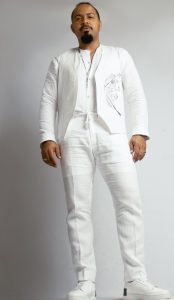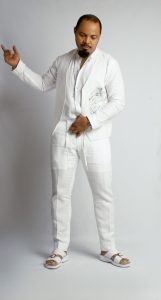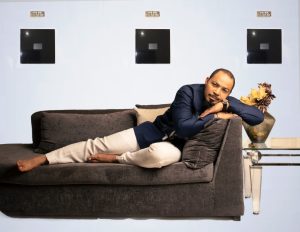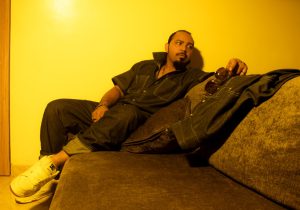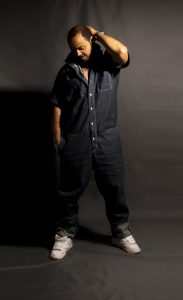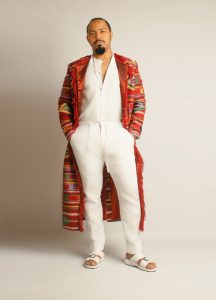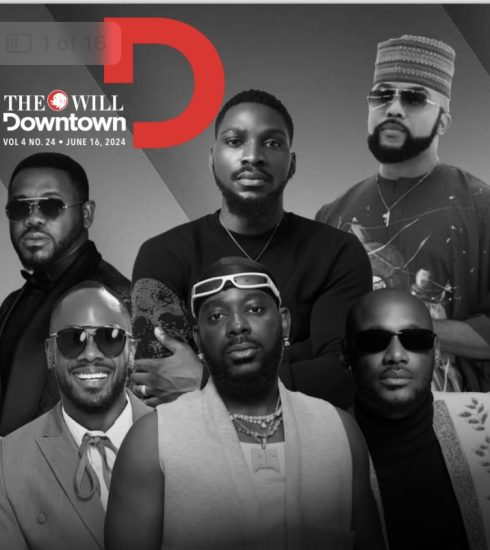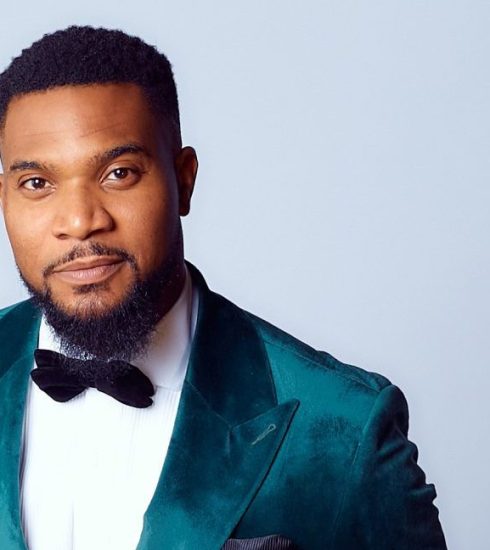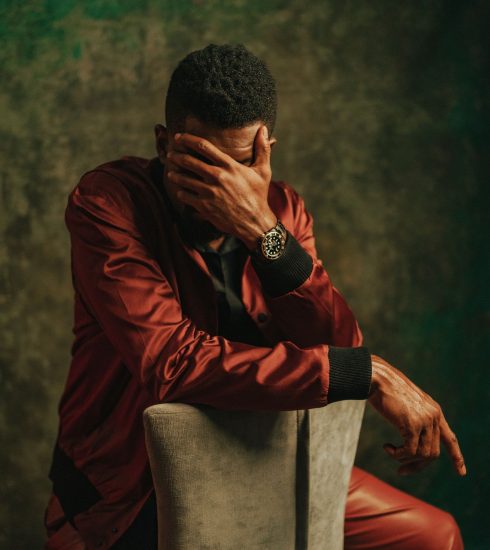Ramsey Nouah’s Pristine Vision For Nollywood Storytelling
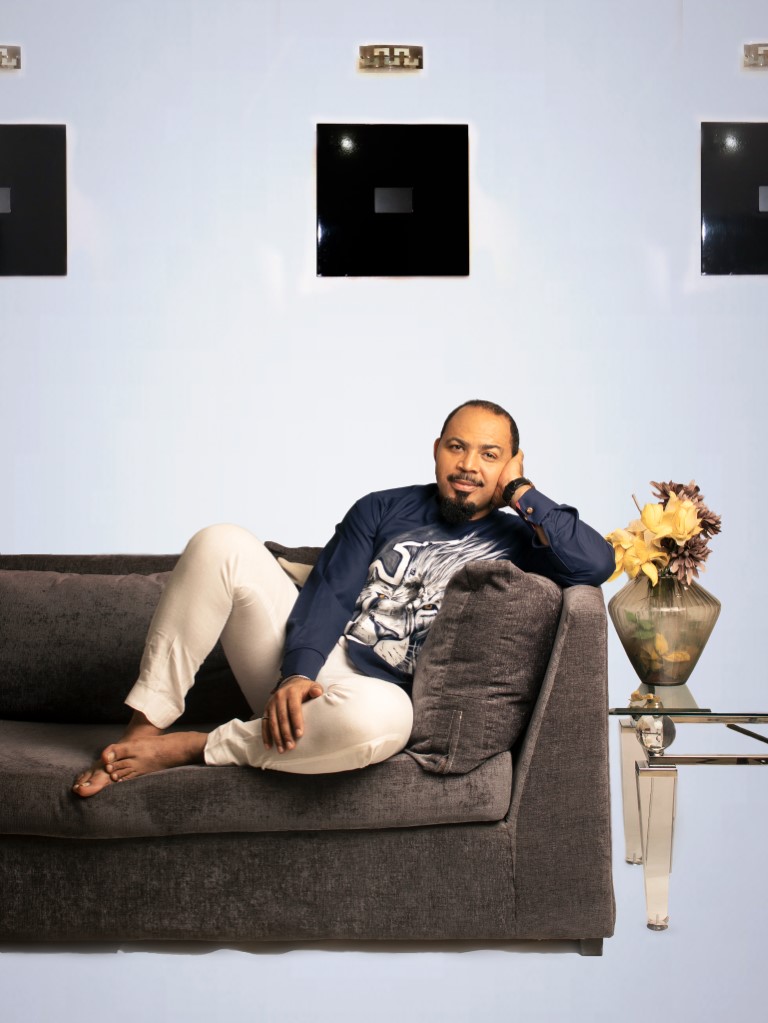
Seeing into Nollywood through the imaginative, futuristic mind of the Oscar-rated actor, Ramsey Nouah, reveals an orderly manner to approach storytelling. At a filming set, he imagines every character is almost like a tool that the director can employ to channel a deep, visual experience that an audience could care to remember. While doing this, a dynamic career he is grooming means he is ever engaged. The veteran, Nouah, has got a portal he has carved out for when he needs to let off steam should one be needed-such as through sightseeing and underrated fun games. Among a list of interests, the sharp appetite to recreate historical pieces has noticeably stuck out. He discusses all of these with DOWNTOWN’s Ayodele Johnson.
It’s been approximately three years since your directorial debut in the movie, Living in Bondage: Breaking Free (2019). Has this experience taught you a distinct way to imagine storytelling?
Of course it did. In so many ways, it did. As a matter of fact, my concise way to answer that will be to continue to be as visual and as authentic as possible in my artistic approach to professional directing.
Were you upset after the copyright theft row that occurred with graphic designer Louisa Ejenavbo who created art used in the production of Living In Bondage?
Absolutely not! She is an artist and has a right to her work. But unfortunately, there was a disconnect somewhere there. The disconnect was that she wasn’t working under our department – she was working in another department which is the set design. The set designer (a male staff) who employed her fell short of pulling through the project and we had to let him off. It cost the production and a lot on our budget because he wasn’t fulfilling his part and was dragging production back. We didn’t realize that he didn’t take care of some of his workers. The aggravation wasn’t meant to be to us, but as I said, she is an artist and she deserves her work and her worth.
You have admitted interest in shooting a historical movie. What makes such a theme attractive to you?
Historical pieces give a wonderful and colourful palette to tell a story. The depth of character for actors, the visual canvas for directing. It is quite an intriguing moment when you think about the creative effort that you need to put into it to get the best out of the actor. When you are talking about history, you are talking about something that a lot of people may have only heard the stories of but right now, you are not just giving them the story which is of course written, you are visually giving and creating that moment for them. Historical pieces are very important and necessary – I love them.
When you are not acting or directing a cinematic hit, you devote time to other efforts. What sticks out the most among a list of interests?
Family, squash, travel. Most times when I am not professionally inclined, I am usually with my family because they rarely see me. Work can take a bit of time. If it is not that, I love to travel and like to play squash as my sport. I like sightseeing and beautiful scenery. They tend to rejuvenate my creativity and clear my head. And I do find myself in those moments when I feel clogged-headed from either performing as an actor, getting into a character, or directing a job and then realising that you want to go clear your mind. I usually like sceneries for that, sort of like landscapes, oceans, skies, nature – things like that.
It seems that you keep it together more than most. What is your hack for coming out good as you do every time especially when you have to combine movie directing with acting?
First and foremost, I understand and believe that I’m an artist. Either as an actor or a director, I am an artist. I also have my support system to thank for how far I have come and for being where I am today. I have my fans, my loved ones. The people who show me love and care. They keep pushing me and telling me, “Ramsey, you are doing the right thing. We love you.” When you get all those encouraging words, they tend to keep you going and you just love the moments.
You are among 365 movie industry professionals listed as Oscar’s new academy members for the year. What do you make of the diversity going on there?
Without being superficial, I am brutally honest here – I think I like the move. I totally admire it. Don’t forget, most of us got groomed by Hollywood basically. They taught most of us the filmmaking style. They got us interested in it. That’s the biggest film festival worldwide and probably the oldest. So, it is a great honour to be part of that. And the diversity, bringing other tribes and traditions, culture inclusive into it, is I think a dynamic move by them. So, yes. I am very appreciative of it.
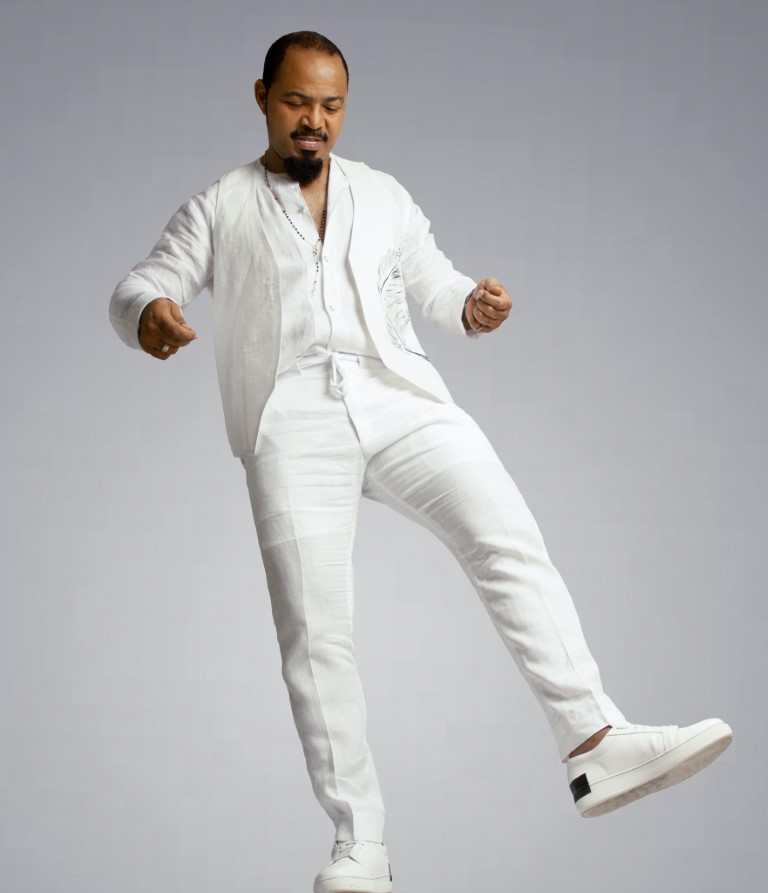
An inspiring delivery by you in the 2016 movie, ‘76, earned you a deserved spot on the member list. Is that an urging that historical movies should be told more?
Oh, yes, of course! They need to be told. Very much so, and also executed brilliantly, you know. We talked about it earlier from one of your questions. And I mentioned how a historical piece is very necessary to keep a tab on what happened back then because that’s the only way we can move forward. You need to understand where you are coming from to know where you are going.
So, being able to put those pieces together and execute them brilliantly is very very key. Yes! It should be done. More often, as a matter of fact.
In your assessment, you think the actors’ delivery in Nollywood films needs to go deeper. How can a movie director get an Oscar-winning performance from the actor?
It all boils down to the story and characters created. Once the director adds his insight and visuals to the mix, he creates an atmosphere for the actor to dig out gold. No hurry to move to the next project. Working with the actor bit-by-bit from the eyes to the voice and body language, are very paramount things that a director needs to put in to make sure that he gets his best look or feel of that visual aesthetics. As the director, you are the creator of this work and everybody working on that set is almost like your tool. So, actors are like the brush that you use in painting the picture. Each stroke that you use to perfect the lines that you create creatively is very key. How you hold the stroke, the love in which you use to hold the stroke is like to say the love in which you deal with your actors. The way you tell them how you want them to come out. The way you bring that character out of them is very key. It is huge work for the director to understand all of these. Bringing out the best of the end product which is the visual look of that creative work you want to bring out.
Could you talk about an imminent acting role you have up your sleeve?
Please let’s not ruin the surprise, I beg of you. Yes, I do in all honesty. I am actually working on one. I will just give you the title because I do not want to let the cat out of the bag. It is titled Man in the Mirror and there is a strong-performing character in it.
Since you have an imminent acting function planned out, how do you plan to prepare for this?
I tend to internalise the story. Understudy the necessary materials and imagine interesting nit-bits that could spice up the character. All those things are very important and necessary. Then play with the ideas, play back the lines and rehearse. I tend to submerge myself into that world of the character that I want to play. I look at all the things that might just give it that extra finesse or character that might make it a bit more endearing and realistic. Those are key things that I always put together to make sure I bring the best out of the character. That is what I do.
Do you have any other artistic tendencies that are yet to be explored because of your deep involvement in filming over decades?
Absolutely! Of course, there is, which is to supervise a score and the music. So, film for me is visual and sound. Film started up with just visuals and then sound was added later on and then became so strong. You now realise that sound is quite huge when you want to bring in the thrills and get into the mind of the viewers, depending on whatever genre you are trying to portray. Be it action, drama, thriller, sci-fi, any of them. Sound tends to take the viewers along. You can make sounds very horrifying. You can make sound and create suspense and moods. All those things are very key and that is one part that I know that filmmaking in Nigeria, has neglected for so long that it is almost like you have to go back to school and orientate yourself on how to apply sounds perfectly to the visuals that have been created.
Cinema-goers and those who binge from the couch are expecting from you the delivery of a biopic on the Niger Delta hero, King Jaja of Opobo. What can be expected in the form of an authentic perspective?
For me, it is about the man himself. His moments and memories that define him as Jaja of Opobo. His business, trading acumen, his courage. During colonial rule, he was able to pull things through. He had what you will call native wisdom and that helped pull him through and he started a whole tribe with that. A young small boy coming in from the east went to the south and started his own kingdom. I think it is about time for me in my own opinion to start telling our history because it is like we don’t know what some of our great forefathers have done. Don’t get me wrong. Most of these things are written down, but even at that, I can see that most people do not have access to these things so it was very important and necessary to create visuals for them. It is one of my great works I intend to embark on very strongly and I intend to bring the best out of it.
What do you imagine would be the aftermath when it is all done?
It is hard if you are expecting me to say that it is going to be a blockbuster or something. I can’t really say that for now. All I can say is that I am going to do something that a lot of people, not of just this generation but of those to come, can point and remember us by. There are a lot of things that we have in Nigeria that are just written, and I realise that the new generations that are coming are more visual than writing, so why don’t we do the visuals for them? And why are we not actually visually telling our stories anymore? I can’t say to you what the outcome will be but it is going to be educational, inspirational, and will touch people’s lives and make them rethink what they want to do as they move forward.
What is your favourite place to visit away from the African continent?
I would like to go to another continent completely. Australia. I don’t know why. I just like the fact that it is so far off. It is something different and unique. I have been there only once and I would like to visit it again. It is almost like an outback continent for me. But professionally, I would like to go to Atlanta, Georgia in the United States of America. I would like to visit there more often and also for the fact that Tyler Perry has a big studio there. I am yet to go see that, so I am looking forward to it.
What is an achievement in your career that you treasure so far?
The funnel trap that I can give you right now is the understudy of lives of military officials for the movie, ‘76. We were on set for almost six months and we were in a military barracks. We had to do some drills just to get into the military state of mind. It was an eye-opener for me and I love the fact that I could see that. I love playing alternative roles – it broadens my depth as an actor when I do that. As a director, the privilege to tell Amaka Igwe’s story is one that I do not take likely. When I did Rattlesnake as a director, that was very key for me. When we got the right to shoot it, I was very happy because I was thrilled and I wanted to remake it. Unfortunately, I didn’t get the mileage that I want on it because I filmed it during COVID, so it was a lot of shortcoming in the process and we couldn’t hold back because we already put a date on release at the cinema. It was hard but we just had to let it go.
What kind of world can you envisage for future iGens and daughters that would grow up to experience the Nigerian movie industry?
The key factor is that they are here and they are here to stay. They are going to be part of our growth and whatever it is that we do right now. As far as I am concerned, I want a world where we are not ashamed of our stories. A world where we are not ashamed of our mistakes, culture, and people. To make our voice count; our Nigerian heritage displayed for all to see through media and technology available. That’s what I see for the next generation to come. Where they can know our stories and they are not ashamed to talk about those stories – our history, where we come from, what we are. Tell it, wholeheartedly beat their chest and say “that’s who we are and that’s what I am. That’s what I stand for.” It does not matter what gender you are. Tell your story. You are more than a professional. You are the image of success in a given field. Will you be taking a break at an age limit you have already decided? I intend to ride until the wheel falls off my brother. Look! I love pushing myself, so I will push as far as grace would have me go and that’s just me for you.
What is a memorable movie set experience that you remember?
Living in Bondage because I was very impressed by my team. The amount of room the team gave me to be a perfectionist. I mean I was a bit extreme, they all could testify to that but they accommodated me. We did a lot of a couple of things. Talking about scenes in the movie where I was pushing a lot of the people to the extreme. I remember the first time I was going to shoot the club scene where after the opening prologue of the movie, we had the scene where we are talking about Lagos, and in the club where Nnamdi (a character) and his friend went in and got thrown out by the bouncer. That club, I remember the first time I wanted to film, we had issues and I didn’t like the crowd. I had to cancel the shoot. We had to come back and reshoot that. So many things that I wanted to get right but couldn’t and we were there until daylight. It was supposed to be a night thing of course and I thought that we could finish in like four, five hours. We were there until morning. Luckily, the internal part of the club was still very dark. I remember also shooting the scene where you had the hooded head cultist in the black hood – they shot at him in Durban, South Africa. It was a rush-in and rush-out thingy and I was burnt out. My team made sure that they helped me see it through to the end. The support that they gave me was beyond ordinary. It was an experience that I would always love to remember.
Can you measure the influence of Nollywood outside its natural environment?
I think it is about how our stories and actors crossover to different parts of Africa. Ghana for instance and Cameroon. I remember a moment when I was in Kenya. We were celebrating the first of October over there. I think I was on the stage with D’banj at the time and the crowd was really awesome. The crossover was the fact that they loved Nigerian movies. Not just movies, they loved the music and everything about it. How we crossover is very important. It is a great thing – I think that’s the best thing that can happen to us.
Do you think the ongoing collaboration between local film industry experts and international contemporaries has reached a peak? If not, what more can be expected?
Unfortunately, I don’t think we are there yet. I am sorry to say that but that is the truth. We do not have an international competitive edge infrastructure-wise. We lack that, unfortunately. We are still considered and valued locally more than internationally. Considering the fluctuations of the dollars, raising funds is still like trying to surmount Mount Everest or Kilimanjaro – it is still very hard and a far cry. In the future, we will be going with more efforts put into the creative art of filmmaking. Getting the depth of it and bringing that authenticity – who we are, our culture, tradition, what we are and portray. Hopefully, we might be able to get to that point where our films become internationally acclaimed and they cross over very perfectly without much ado. And of course, the key factor is the structural things that need to be put in place. For instance, laws that are protecting the industry and practitioners. Once there is unity and a unified body, and everybody talks together in one voice, then yes, we can find it.
Which movie of yours has deep, personal meaning to you?
That’s very simple – ‘76, and Living in Bondage. In ‘76, I understood the pains of a military person when I did an understudy of being in the military state of mind. I realised what some of the soldiers go through. So, there was a sort of a personal connection with that when I was observing it. When I did Living in Bondage – when I acted and directed it.
Do you sense that it has become easier to make movies in Nigeria compared to equipped foreign movie industries like the US?
Of course not. There is so much lawlessness around that is creating all of these. The lack of structure that I am talking about. We have talked about the crazy exchange rate, the guilds, and unions that are not unified. All of that is what would not make us be able to find that bearing where we can compare ourselves to Hollywood. We need to come together and go by the law. Hopefully, with the economy steady, all these will come together, and then we will be able to find that structure that can now be comparable at least to a certain degree with Hollywood.
What does Netflix’s interest in local content mean for Nigerian filmmakers?
It is an open field now where everybody can have their reach; where your movies can cross borders. I think it is a big thing for us and would create healthy competition for us to get better.
Are you seeing gender balance and the end to the marginalisation of women in the movie industry?
I believe they are taking the right step towards gender balance. It is a slow, steady process but I know we are going to get there most definitely. We are moving closer to the idea and it can only get better as we go.
It seemed you had been marked to play emotion-focused roles that had you many times assuming a lover as a character. How have you found the recent switch to comedy?
I found it quite interesting but yet limiting. I like to be a versatile actor. The fact that you see me as a lover boy, you think that’s the only thing I am good at. No! I don’t like to be boxed in a corner – I like to approach things from a versatile angle.
What needs to happen first in your mind before you decide to make a movie?
I like to connect to the project emotionally, artistically, and professionally. That way, I am consumed by the work. You will know that I am consumed with the job emotionally – that means I love it. Artistically is how do I make this visually real and professionally go all the way out to work out all the details necessary to perfect the job.




